‘‘A dream come true’’
The Slinger brothers were ardent jazz lovers. This was no exception in the first half of the fifties. Just as the ‘teenagers’ later fell for rock and roll, the youth in the previous period was crazy about jazz music and jazz singers. Louis Armstrong and Tony Bennet were among Casper’s favourites.
The two bought American jazz records at the Beethovenstraat in Amsterdam. “In a small boutique, Gloria, they befriended a certain John Vis, who worked there as a salesman. He had a profound knowledge of music, he was a real expert. As a consequence of the conversations with John Vis, Casper and Willem developed the idea to start their own record company and to employ him. Because of the enormous profit, achieved during the Suez crisis, my father and uncle could realise their dream!”
According to Ariane, it was her father’s idea to call the new company Artone. “He used the expression ‘C’est le ton [Artone] qui fait la musique’ his whole life and that became the company’s slogan.
While establishing Artone, temporarily based on the Parklaan (number 97) in Haarlem, the Slinger brothers discovered that most Dutch record companies showed relatively little interest in introducing jazz records to the market. This was their chance, they thought. “They decided, in particular my father, to travel to America. They visited all the American jazz labels and offered their services: to press their records in the Netherlands and to establish a distribution network for them. In the beginning they did not have their own factory. Pressing still had to take place in Germany”.
Gijs Leijenaar, one of the first employees, experienced it differently: “The first disks, usually 78 rpm records, were imported from America in huge heavy cases. They were unpacked and stored by Harold Hendriks (another employee), and myself. Well, if they were not broken, that is. Many were broken!
After a while [in 1957] the former hotel Funckler in the Kruisstraat in Haarlem was bought.
The galvanic department was placed in the kitchen. The record room [storage room] with a shining parquet floor used to be a ballroom. After that the conversion to an office building began”.
Artone goes full steam
ARTONE succeeded in taking off. After a while there was a sort of division of tasks. Ariane described the division as follows:
“My father took care of the general management of the company. He hired the most important people (‘directors’) and frequently held meetings with them. He made the financial and strategic decisions. It was he who decided to buy hotel Funckler and to change it into an office building. His father [Dingeman Slinger] helped with contracts and licences – he knew many people at the municipality of Haarlem.
My father built a factory in the Waarderpolder and invested much money in expensive German instruments. [The galvanic department moved to the factory]. Later on my father decided to buy a printing company for making sleeves so that Artone could produce everything independently. Photographers were hired [for example, Kees de Jong] to make beautiful sleeves, pretty girls were put on them (‘hoezenpoezen’ – ‘sleeve kittens’), they did everything to make the records as attractive as possible”.
What was not sold on time, had to leave the warehouse. “After Christmas the records went on sale at the Dutch department store Vroom en Dreesmann. He also introduced the idea of painting all the delivery vans bright orange for delivering all their records in the country. In that way the company was really eye-catching!” [Harry Knipschild – Vriendinnen voor het leven dankzij Artone]
There was more about the approach of Casper Slinger. “My father was a discrete and hard worker. From six in the morning to 11 at night and often on Saturdays too, he worked for Artone.
He had a modern vision of management. Managers that were important for the company received a house, paid by the company, and a car. All the staff received a flu shot before the winter. Most records were sold around Christmas and no one could afford to become ill then.
My father had a small messy office. All employees could talk to him about their problems, big or small. He wanted to be close to his employees”.
Casper Slinger was not a flamboyant man. “My father did not like going out at all. He was more of a family man”.
Wim [Bill] Slinger, Dave Brubeck, Casper Slinger
Ariane also talked about the work of uncle Willem, who travelled frequently to the US for some time: “My uncle had a legal background. So his job had to do with that. Contracts were signed with Cameo Parkway, Motown, Reprise, Roulette, ABC Paramount and CBS. Big artists such as Ray Charles, Ella Fitzgerald, Louis Armstrong, Chuck Berry, Frank Sinatra, The Supremes and many others came on the market in the Benelux through Artone.
My uncle negotiated and drafted the contracts. He was involved as a lawyer in take-overs and the (international) distribution network. He worked as Secretary General and operated as the ‘legal department’ of the company”.
About John Vis I wrote down: “He was hired as a director. Vis was an expert and a very social man who liked going out in the evening and having a drink. He had an artistic role at Artone: choosing artists. He went out with artists and producers. Vis was well-known in the record industry, he had good and commercial relationships everywhere. He was also responsible for the sleeves.
John Vis is also the one who introduced the idea that the texts of the records should be added to the records, so that everyone who bought a record could sing along.
At the initiative of John Vis my father hired Joop Portengen for the establishment of a music publishing company. Portengen acted as the director of the publishing company of Artone”. The publisher played a role in large Artone successes such as ‘De Bostella’ (Johnny & Rijk, 1967) and ‘Cha la la I need you’ (Shuffles, 1969).
Furthermore, a special role was reserved for Jaap ‘Pete’ Felleman (1921-2000). Felleman was a famous Dutchman due to his radio broadcasts around 1950, in which he presented the latest hits of American vocalists and jazz artists. He also obtained experience in the record profession as the head of the Capitol label (at Bovema in Heemstede).
In December 1961 Billboard stated: “The distribution of Reprise Records in Belgium will be handled by Pete Felleman Jr., for Socodisc, Brussels. The label had a strong start with Sinatra’s ‘Granada’ and his LP ‘Ring-a-ding ding’”.
Not much later Felleman became the label manager of Reprise with Artone. There are no further details on this. Jaap was also responsible for the national and international exploitation of labels like Chess, Palette, Hickory, Funckler and Motown. The record pressing department of Artone was responsible for a significant number of orders from European countries that were instigated by Felleman.
Ariane Slinger had a different view on this: “Pete Felleman was an important man in the company. He was responsible for the relations with the Medias, especially the radio – to make new records famous as soon as possible. He was very good at that. His warm voice was extremely popular with the Public”.
In the sixties Artone had a large number of American hits. To mention just a few: ‘If I had a hammer’ (Trini Lopez), ‘Red sails in the sunset’ (Fats Domino), ‘Shame and scandal in the family’ (Shawn Elliott), ‘Norman’ (Sue Thompson), ‘Bread and Butter’ (Newbeats), ‘Personality’ (Lloyd Price), ‘I can’t stop loving you’ (Ray Charles), ‘Lonely Boy’ (Paul Anka), ‘Blowing in the wind’ (Stevie Wonder), ‘It takes two’ (Marvin Gaye & Kim Weston), ‘Ya Ya’ (Joey Dee), ‘Loddy Lo’ (Chubby Cecker), ‘Where did our love go’ (Supremes), ‘No particular place to go’ (Chuck Berry) and ‘Reach out I’ll be there’ (Four Tops)
And there would be even more…

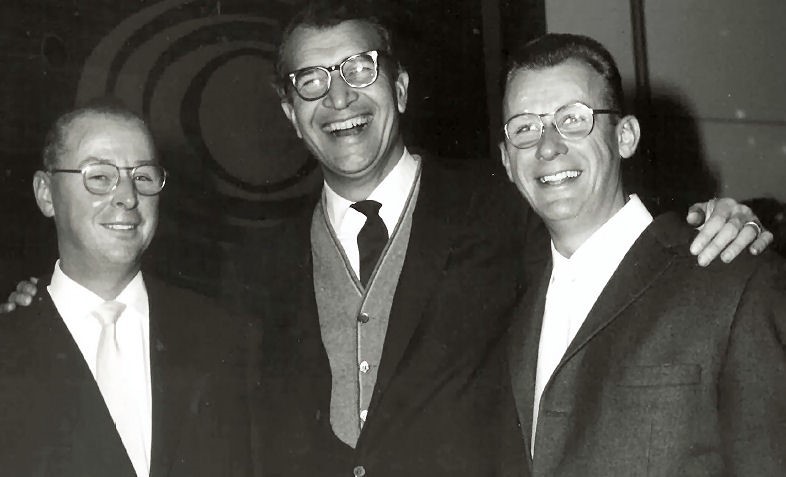

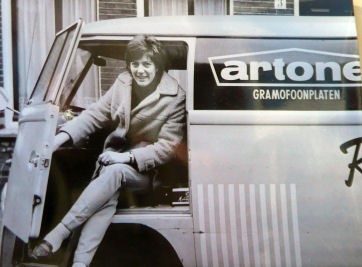

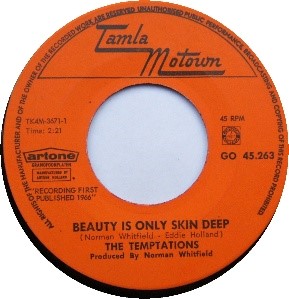
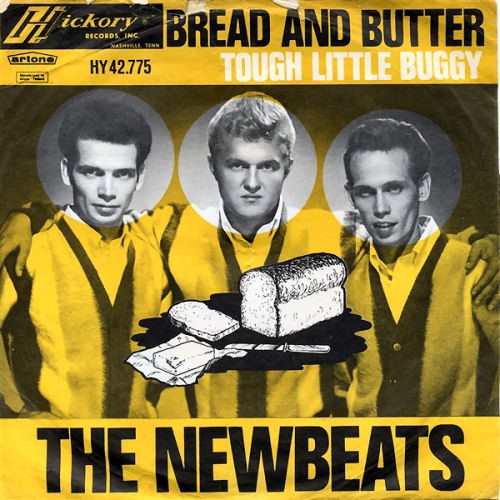

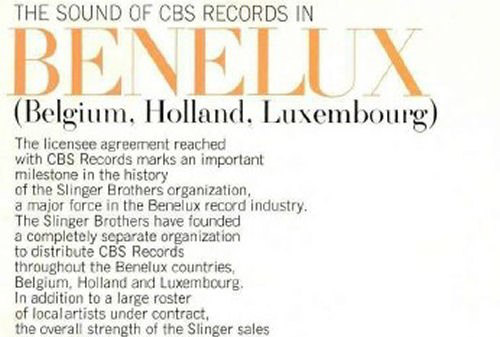
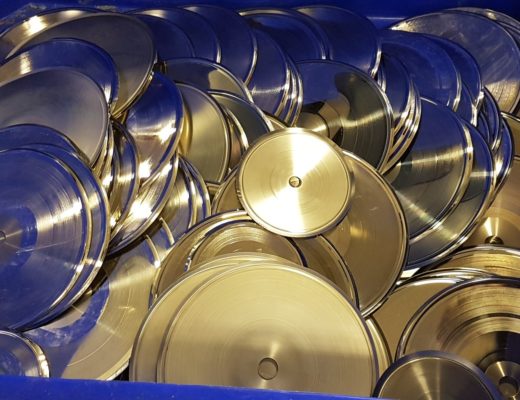
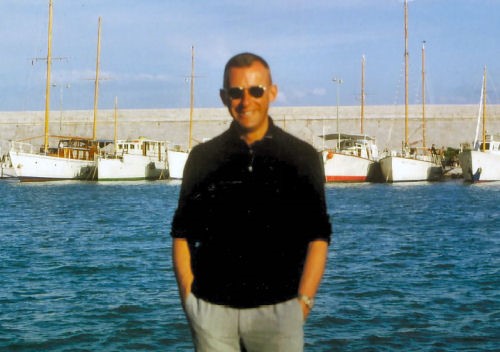
No Comments